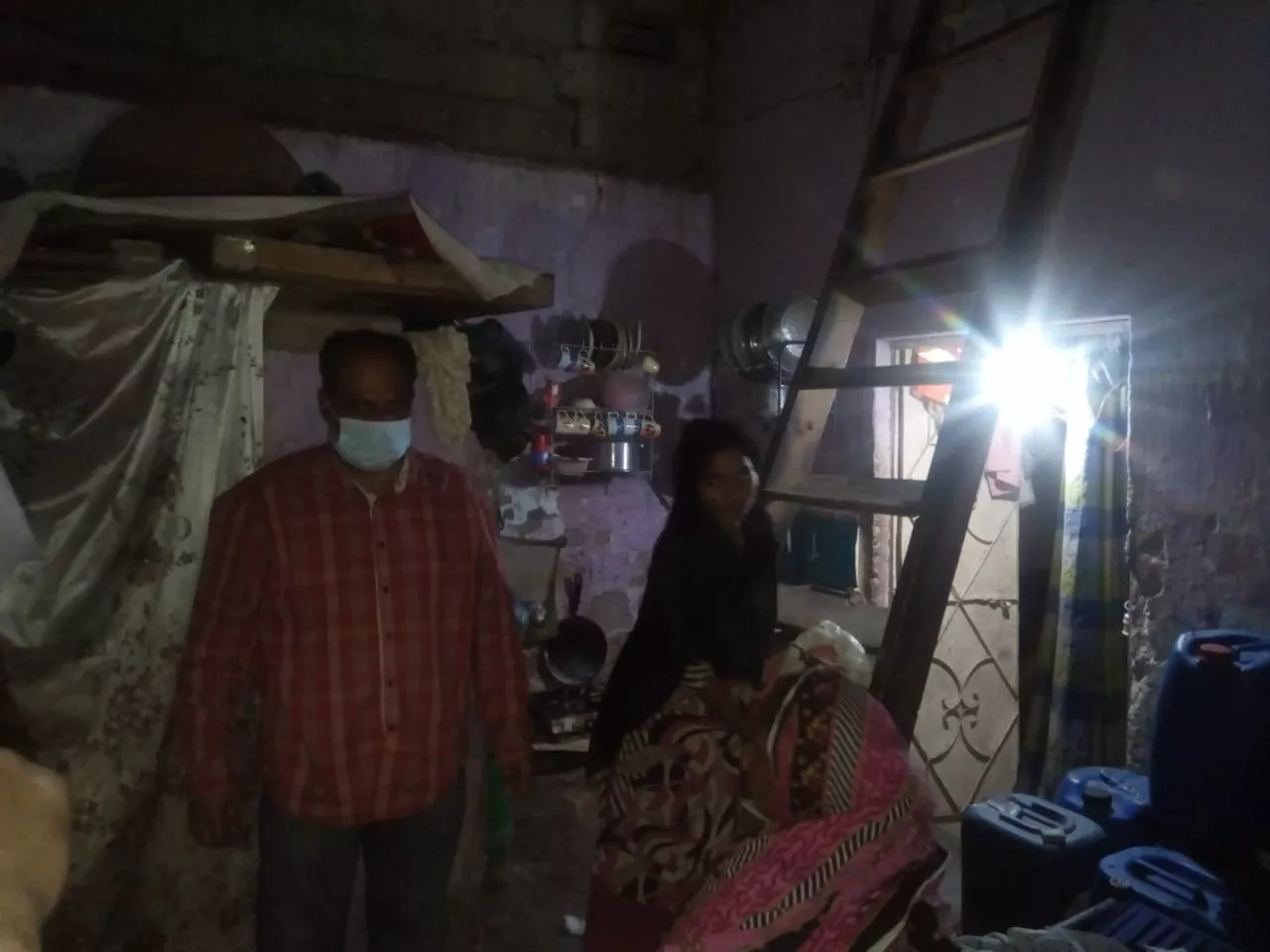Karachi doesn’t forget its minorities
Muslims distribute food items to Hindu and Christian daily wagers in FC area
KARACHI: The coronavirus pandemic doesn’t discriminate. It afflicts everyone, people of every race, of every colour, of every faith, and of every ethnicity. So, global response to this pandemic should also be indiscriminate.Karachi, a teeming metropolis of nearly 20 million, is in lockdown like many cities of the world in an effort to stem the virus spread. While the lockdown is helping to contain the deadly pathogen, it is threatening those who earn their living on a daily basis.
The provincial government says it would make sure daily-wagers are taken care of. At the same time, well-off people have also stepped forward to help such people who cannot afford to stock food items at their homes.
And this charity doesn’t discriminate on the basis of religion. Some philanthropists are particularly helping families from the religious minority communities, including Christians and Hindus. In Karachi, these minority communities live in the neighbourhoods of Isa Nagri, Pahar Ganj, Ranchore Lane, Landhi, Korangi, Keamari, and Soldier Bazaar.
People from these minority communities mostly work as day labourers to earn a living. Since the city has been in lockdown - and might remain so for the next couple of weeks, these families might be facing possible starvation.
In the Federal Capital Area of the city, the union council’s chairman and local affluent people have pooled money to purchase and deliver food items at the homes of Hindu and Christian families in the neighbourhood who mostly subsist on daily wages.
Javed Mehmood Masih, a local social worker, said the Sindh government decision to lock down the city would help contain the spread of coronavirus. At the same time, he expressed fears that the lockdown might starve thousands of daily wagers from the minority communities.
According to unofficial figures, there are 500 families of minority communities in the Federal Capital Area. And most of these families earn their living on a daily basis. “We are thankful to our Muslim brothers who have taken it on themselves to drop food items at our doorsteps,” Javid Masih told The Express Tribune. “They are doing all this inconspicuously in an effort to make sure the dignity of these families is not hurt.”
Javid Masih said a large number of minority community members are associated with the medical field and “they are playing their role to rid the nation of this pandemic”.
Local government member and social worker Sajid Musharraf said that it was the responsibility of every affluent Pakistani to help his needy compatriots without any discrimination.
“We are helping our Hindu and Christian brothers on a self-help basis. We have identified the most deserving families. And we’re ready to help the government should it decide to distribute food rations at the union council level,” Sajid, who is also chairman of the local UC, told The Express Tribune.
UC vice chairman Shamshad Zaidi and councillor Ehtesham Lodhi said they wanted to send across a message to the world that Pakistanis are one nation and would stand with each other through thick and thin irrespective of caste, colour or creed
Families forced to eke out a living by begging on the streets have been especially hard hit by the closure of markets, malls and restaurants. With many charity-run food shelters in the city closed as well, they have also lost a major source of sustenance in these trying times.
Still, in what should be a wake up call for those still trying to flout restrictions imposed for everyone’s safety, these families seem to have a better grasp of the stakes.
“Although we hail from Matiari, our life revolves around coming to Karachi to beg for alms,” said 60-year-old Dharma, who serves a shared matriarch of sorts to a cluster Hindu beggar families that currently live in Punjab Colony. “We are like gypsies, you can say. We spend three months in our native land during harvest season and then three months in Karachi. We have lived like this for 30 years.”
“When we are in Karachi, the women and children of our families seek out a living by begging while the men sell random items like balloons, children toys and vegetables on street corners,” she explained. “This usually gets us around Rs500 a day, meaning we still have to beg for food outside restaurants or eat at dastarkhwans arranged by charities.”
“Nowadays, though with this coronavirus disease and the lockdown, all these sources have dried up,” Dharma lamented. “I could only earn Rs100 or Rs200 over the past four days. Entire families are surviving on a single loaf of bread.”
“Even so, it is good that the government has closed everything to stop the outbreak,” she said. “We are scared of coronavirus as well. Even though income has dropped and our rations our running low, I have asked my children to stay home.”
That said, she appealed to both the provincial and federal governments to not forget about them and leave them at the mercy of both hunger and the virus.
Published in The Express Tribune, March 29th, 2020.


COMMENTS
Comments are moderated and generally will be posted if they are on-topic and not abusive.
For more information, please see our Comments FAQ